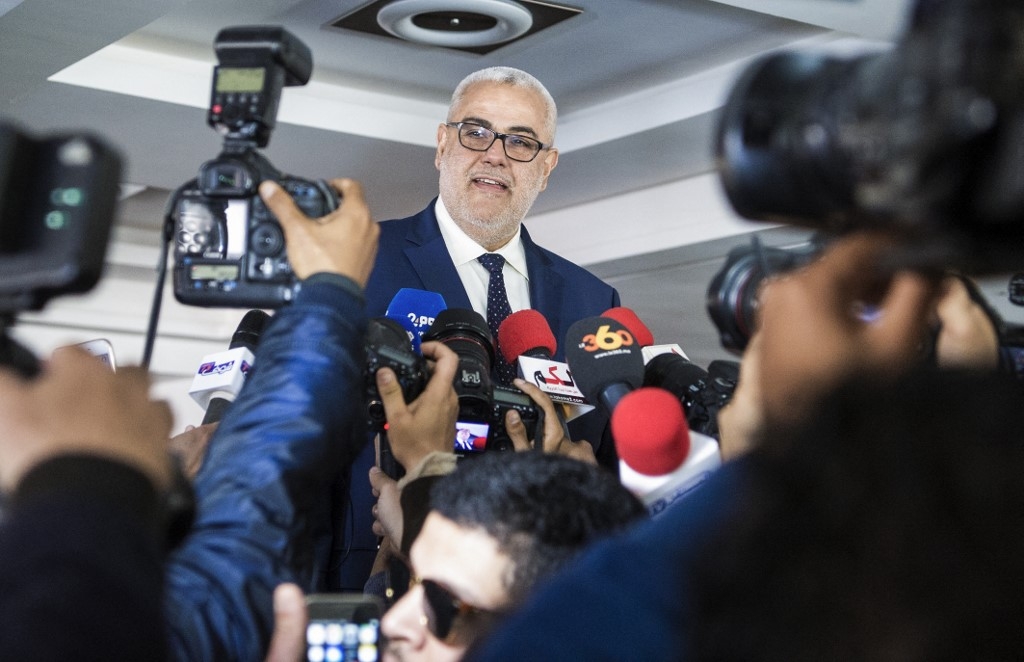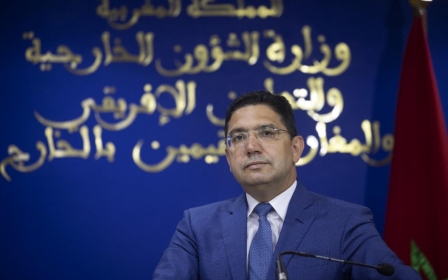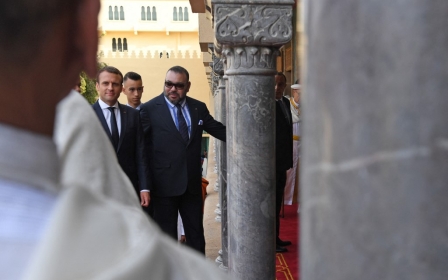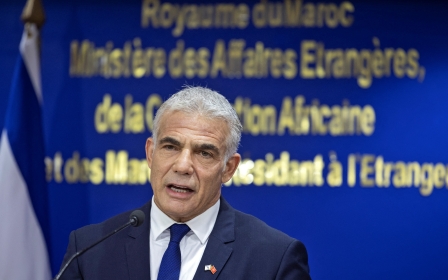Morocco: Abdelilah Benkirane, the former PM conspicuously absent from the ballot

Abdelilah Benkirane, the former prime minister of Morocco from 2011 to 2017, will not run in the general elections taking place on Wednesday for the first time since 1997.
In 24 years, this is the first time the Islamist orator, famous for his biting retorts to adversaries, is totally absent from the ballot - and from the electoral campaign as a whole.
This is at a time when the party he led, the Justice and Development Party (PJD), is at a greater risk than ever of losing its place as the premier political force of the country.
In response to persistent requests from several members of the PJD, Benkirane agreed to break his silence on Sunday in a Facebook livestream, serving mainly to lambast his long-time adversary Aziz Akhannouch, the president of the National Rally of Independents (RNI), third richest man in the country and minister of agriculture with purportedly close ties with Moroccan royalty. Akhannouch hopes to win the elections with the backing of significant financial resources.
Benkirane, however, stopped short of endorsing any particular vote.
“Of course, several brothers have contacted me to ask me to participate in the campaign, which I did not want to do. Yesterday, a friend, who is not Islamist, asked me to do what I could,” he commented, before calling upon his followers to go out and vote.
“I will of course vote for my party, but I am not asking you in this livestream to vote for the PJD,” he said.
Forced retirement
After the PJD’s electoral victory in 2016, King Mohammed VI tasked Benkirane with heading the government and forming a new coalition.
He failed to find a viable formula, however, because of certain conditions imposed by Akhannouch’s party - specifically the requirement that the coalition government include the Socialist Union of Popular Forces (USFP) and the liberal centrist Constitutional Union party. Benkirane refused to comply with these conditions. In March 2017, after an unprecedented five-month government impasse, the king sacked him, appointing in his place the party’s second in command, Saadeddine el-Othmani.
“When Aziz Akhannouch gave me his proposal, I wanted to hand the mandate back to His Majesty,” he said on 25 March 2017 before a PJD committee. “But the leadership of my party told me not to. They asked me to be patient.”
Since then, Benkirane has withdrawn from the political stage.
“Benkirane did not choose to retire, it was imposed on him. He is still somewhat bitter about it,” a source within the PJD told Middle East Eye.
Ousted from his position as head of government, Benkirane hoped to keep his position at the head of the party as a way of retaining an element of control on the apparatus, on his supporters.
But that wasn’t counting on some of his former lieutenants, specifically former ministers of his party, who were opposed to Benkirane leading the party for a third term.
“The PJD is not a zaouia [Sufi brotherhood in which the leader is venerated as a saint], it is a matter of principle,” Lahcen Daoudi, a former minister and member of the party, said at the time. A few months later, the PJD ousted Benkirane from the party leadership, only for him to be replaced, once again, by Othmani.
“This ousting from the party angered numerous party activists,” a member of the PJD leadership commented to MEE. “Of the 231 members who voted at the national council, 101 were in favour of a change in the statutes that would have allowed (Benkirane) to run for a new term. This created a division within the party leadership, as yet unresolved.”
Another source close to the former party leadership told MEE that the former premier saw his ouster as unjust.
“Benkirane considers this to be totally unfair, because it is he who brought the party to power and kept it there,” the source said. “In 2011, the PJD won the elections after opposing the 20 February Movement (a protest movement born in the wake of the Arab Spring). In 2016, he led the party to take 125 seats in parliament, compared with 107 in 2011.
“He sees this as his own personal victory, and indeed sees the party as his own.”
Since then, Benkirane has made rare appearances on social media to give his opinion on some of the party’s decisions, a way of measuring his popularity against that of his successor, Othmani.
Awaiting the conference
The most recent of these appearances was in March; the former head of government announced on Facebook that he had suspended his PJD party membership following the adoption of a draft law legalising cannabis for medicinal purposes by the assembly, presided by Othman.
At the same time, Benkirane decided to break off ties with the current head of government, as well as the members of the leadership of the party Mustapha Ramid, Mohamed Amekraz, Aziz Rebbah and Daoudi.
“It’s to a great extent because of this broadcast that 48 ministers of the party voted against the draft law in parliament, even though the draft came from our own government,” a minister commented, as if to illustrate a duality of command within the PJD.
The demonstration of popularity showed, according to several sources within the PJD, Benkirane’s intention to return to the political stage.
“Since he was denied a third term at the head of the party, his aim is to remain visible among his followers as he waits for his chance to return,” a source close to the former prime minister stated.
But the former prime minister has always allowed for his plans to be shrouded in uncertainty.
In July, the regional branch of the PJD unanimously proposed his candidacy in the elections in the city of Sale, the stronghold where he consistently held his seat from 1997 to 2016 - a proposal which would have had to be endorsed by Othmani.
After two weeks of uncertainty, Benkirane finally announced that he would not run. But many of those close to him do not rule out his return to the head of the Islamist party in the event of electoral defeat on 8 September.
According to the party statutes, he can run as a candidate to succeed Othmani at the next party conference.
- This article is an edited translation of a story originally published by Middle East Eye's French website.
Middle East Eye propose une couverture et une analyse indépendantes et incomparables du Moyen-Orient, de l’Afrique du Nord et d’autres régions du monde. Pour en savoir plus sur la reprise de ce contenu et les frais qui s’appliquent, veuillez remplir ce formulaire [en anglais]. Pour en savoir plus sur MEE, cliquez ici [en anglais].






